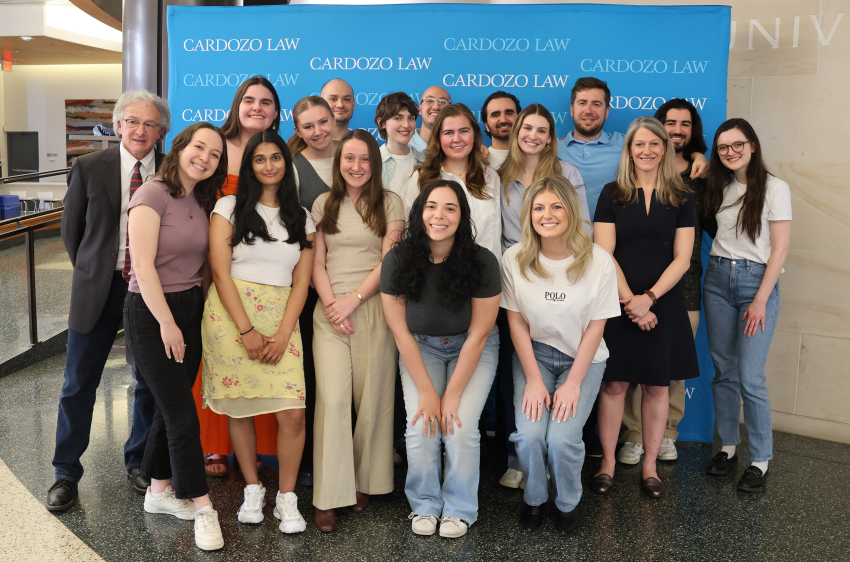
New York, NY – July 31, 2025 – Cardozo School of Law today announced the expansion of its Criminal Defense Clinic, which was founded as the law school’s first clinic in 1978. Death sentences and executions are on the rise in the U.S. – after a record high of 13 federal executions in 2020, the government has pledged to resume executions and to aggressively seek a death sentence “for all crimes of a severity demanding its use.” In direct response to this increase, the clinic will now be known as The Death Penalty and Criminal Defense Clinic (DPCDC) and will work to provide much needed representation to those most harmed by the criminal justice system: those condemned to death.
This clinic affords students the opportunity to receive specialized training in a critical area of need, preparing them to be future defenders and capital litigators.
The DPCDC will represent clients on a national scale, with a special focus on cases in Southern jurisdictions like Texas, which has carried out the most criminal executions in recent years, as well as in Alabama which does not guarantee or provide counsel to individuals in postconviction proceedings, even when they are facing imminent execution.
“Individuals on death row often lack access to competent counsel for a variety of reasons from the high number of caseloads attorneys are handling to a lack of specialized knowledge that is required for capital cases,” said Kathryn Miller, Co-Director of DPCDC and professor at Cardozo School of Law. “Many of the people on Death Row are not necessarily there because they committed the worst crime, but because they had the worst lawyer.”
“We are proud of the criminal defense clinic’s long history of fighting for justice for individuals who might otherwise remain unrepresented and voiceless. We are especially pleased that the clinic is stepping up to meet these new challenges,” said Melanie Leslie, Dean of Cardozo School of Law. “Our students will have a unique opportunity to learn from experienced practitioners and scholars in death penalty litigation.”
The Death Penalty and Criminal Defense Clinic practices defense work at both the front end and the back end of the criminal legal system. In their long-standing partnership with the Legal Aid Society, clinic students will continue to represent people charged with misdemeanors and felonies at the trial level in New York City courts. Now students will also gain the skills of high-level capital litigators by traveling to the southern states to conduct field investigations and interview witnesses for the purpose of drafting post-conviction legal claims on behalf of people sentenced to die.
Cardozo extends its sincere gratitude to Vered Rabia ’98 and to Cardozo Board of Overseers members Eric Cohen ’83, P’12, and Shai Waisman ’96 for their generous contributions that helped make this expansion possible. We also thank the many alumni in the criminal law bar who answered the call to support this initiative.
About The Death Penalty and Criminal Defense Clinic (DPCDC)
Students in the Death Penalty and Criminal Defense Clinic are selected to engage in legal advocacy in Manhattan Criminal Court, representing people charged with misdemeanors from the case's inception through final disposition. A companion seminar offers intensive instruction in criminal law, criminal procedure, and evidence. This clinic also enables students to provide zealous, innovative representation to the individuals most harmed by the criminal justice system: those condemned to die. Students will represent clients in Southern jurisdictions at multiple litigation points – from state direct and collateral appeal to federal habeas, giving them experience in high-stakes litigation in multiple forums and jurisdictions.
The clinic is co-directed by Kathryn Miller, who has a decade of experience litigating capital cases in Alabama, Arizona, Georgia, and Texas as a staff attorney at Bryan Stevenson’s Equal Justice Initiative and as a clinical supervising attorney at the Berkeley Law Death Penalty Clinic and Jonathan Oberman, who has nearly four decades of experience representing low-income individuals at trial, on appeal, and in postconviction proceedings.
